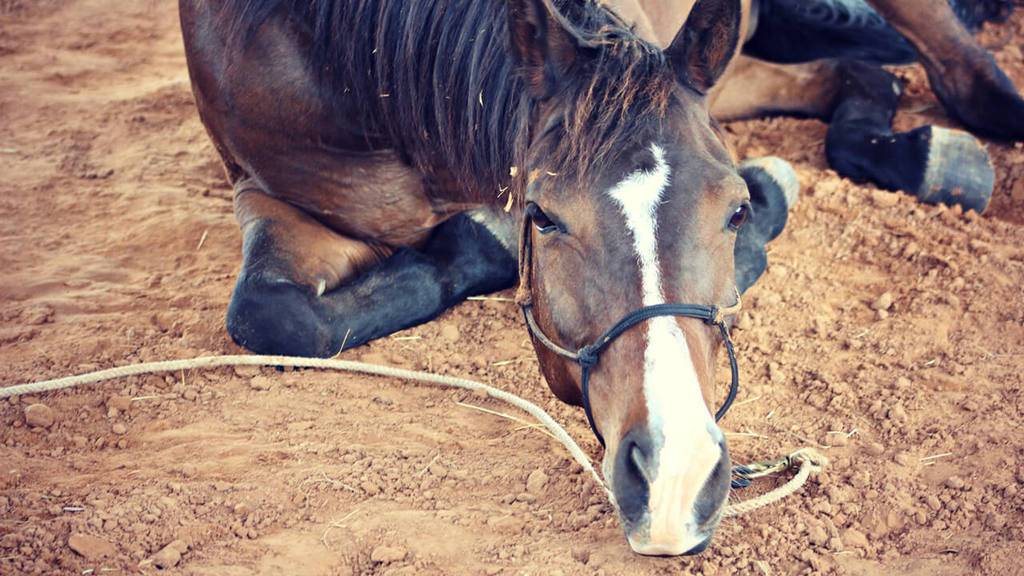We use cookies to make your experience better. To comply with the new e-Privacy directive, we need to ask for your consent to set the cookies. Learn more
Find out how to identify the signs of a horse is in pain and how to treat
Sometimes it is hard to tell if your horse in pain. Some signs are more obvious than others.
Most of us can tell when our horse is out-of-sorts but these are a few specific signs to look out for.
Signs of a horse in pain:
Aggressive or out of character behaviour
Have you ever been in pain and it made you cranky? It is the same with our horses. If your horse suddenly becomes aggressive or tries to bite and kick - remember they are probably not being naughty. Aggressive behaviour can be a key indicator that a horse is in pain.
'Camped Out' Posture
The expression ‘camped out’ is used to describe a classic symptom of a horse in pain. Usually associated with back or kidney pain . This is where a horse will stand with their back legs awkwardly placed behind them. It looks like they’re getting ready to do a pee but never quite get there.
'Goat on a Rock' Posture:
Opposite to being 'camped out' - this is where the horse has all their feet bunched underneath them. This can be an indicator of a horse in pain in their hocks, stifle or back.
Pinched Nostrils:
Pinched nostrils are one of the first signs of a horse in pain. Tension causes them to pull their nostrils back . This is also a signal to other horses to leave them alone.
Lying down more than usual
Sometimes pain, especially hoof or leg pain will result in a horse lying down more than usual. This is because they’re trying to get the weight off their legs. Conversely, horses with hip & back issues don’t lie down as often because it’s too painful for them to get back up again.
Yawning
This one is a tricky one. Unlike humans, horses yawn to relieve pressure in their throat and stomach. While one or two yawns can be for the horse to stretch out tension - if your horse is compulsively yawning then it is a sign that they are not feeling good.
A horse with one or more of these symptoms maybe suffering from ulcers.
 Excessive lying down can indicate a horse in pain.
Excessive lying down can indicate a horse in pain.
Treating a horse in pain
It goes without saying that you should call a vet if you think your horse is in pain. After diagnosing the problem, there are physical, pharmaceutical and lifestyle treatments that can help a horse in pain.
Physical treatments for a horse in pain
Physical treatments for a horse in pain include treatments like bodywork and dental work. These can also include supportive bandaging or icing.
Lifestyle treatments for a horse in pain
These are adjustments that you can make to ensure your horse is more comfortable. For example, a horse suffering from osteo issues like arthritis will benefit from more paddock time or turnout.
Pharmaceutical treatments for a horse in pain
The most common painkiller for horses is phenylbutazone, commonly referred to as bute. Bute is a non-steroidal anti-inflammatory that is commonly used for fever and inflammation.
It is used to relieve pain caused by infections and musculoskeletal disorders like sprains, laminitis and tendonitis. Bute is NOT effective on pain caused by colic.








Validate your login